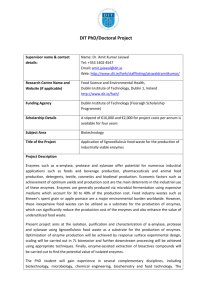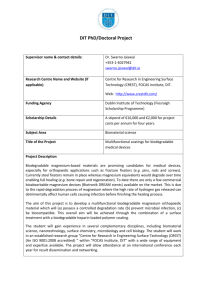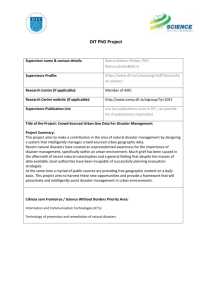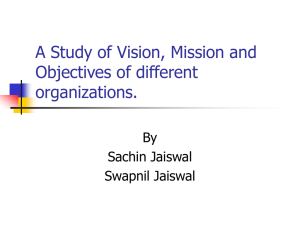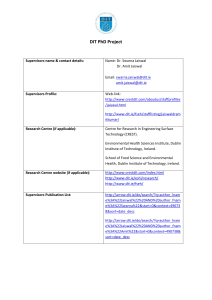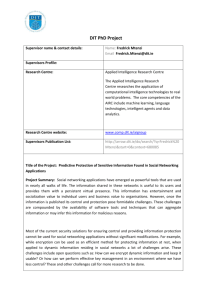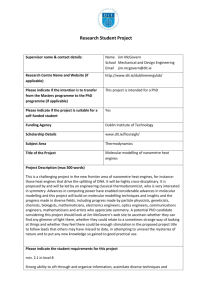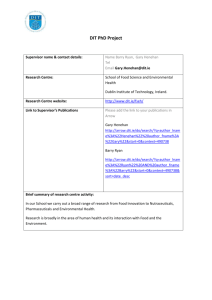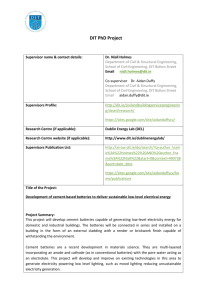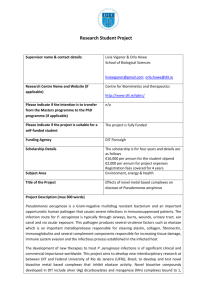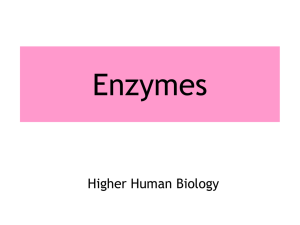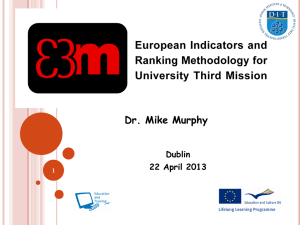Food industry waste for the production of low cost industrial enzymes
advertisement
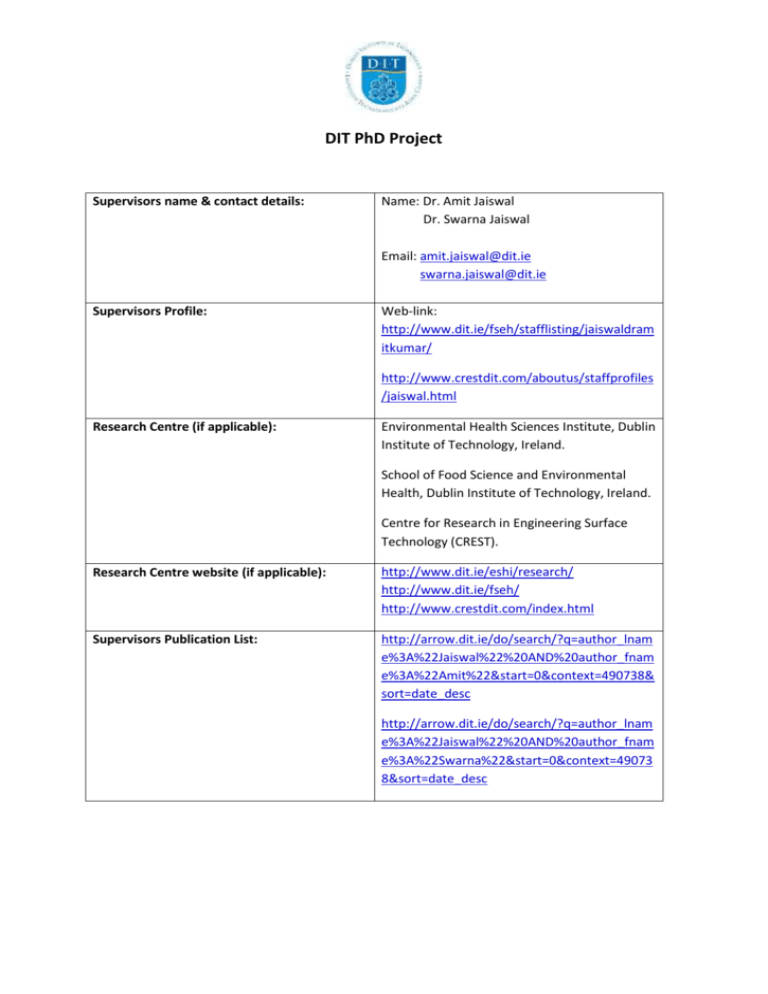
DIT PhD Project Supervisors name & contact details: Name: Dr. Amit Jaiswal Dr. Swarna Jaiswal Email: amit.jaiswal@dit.ie swarna.jaiswal@dit.ie Supervisors Profile: Web-link: http://www.dit.ie/fseh/stafflisting/jaiswaldram itkumar/ http://www.crestdit.com/aboutus/staffprofiles /jaiswal.html Research Centre (if applicable): Environmental Health Sciences Institute, Dublin Institute of Technology, Ireland. School of Food Science and Environmental Health, Dublin Institute of Technology, Ireland. Centre for Research in Engineering Surface Technology (CREST). Research Centre website (if applicable): http://www.dit.ie/eshi/research/ http://www.dit.ie/fseh/ http://www.crestdit.com/index.html Supervisors Publication List: http://arrow.dit.ie/do/search/?q=author_lnam e%3A%22Jaiswal%22%20AND%20author_fnam e%3A%22Amit%22&start=0&context=490738& sort=date_desc http://arrow.dit.ie/do/search/?q=author_lnam e%3A%22Jaiswal%22%20AND%20author_fnam e%3A%22Swarna%22&start=0&context=49073 8&sort=date_desc Title of the Project: Exploitation of food industry waste for the production of low cost industrial enzymes Project Summary: Enzymes such as protease and xylanase offer potential for numerous industrial applications such as dry cleaning, meat processing, cheese making, pharmaceuticals, animal feed production, detergents, textile, cosmetics and biodiesel production. Enzymes are generally produced via microbial fermentation using expensive mediums, and consequently cost is one of the main deterrents in the production of enzymes. Agricultural waste from the food industry is a major concern worldwide. Exploitation of agricultural waste as alternative carbon and nitrogen sources can not only lower the cost of enzyme production but also add value to industry discards. Based on the above facts, the project aims at the isolation, purification and characterisation of enzymes of industrial importance, such as protease and xylanase using food industry waste as a substrate. The following objectives are identified to achieve the aim of the project: Screening of a high yielding strain for the selected food waste and the enzyme of importance. Optimisation of fermentation parameters for high enzyme yield and productivity. Development of kinetics of the fermentation process. Downstream processing and enzyme characterisation. Nano encapsulation of isolated enzymes The PhD student will gain experience in several complementary disciplines, including biotechnology, microbiology, chemical engineering, biochemistry and nanotechnology.
